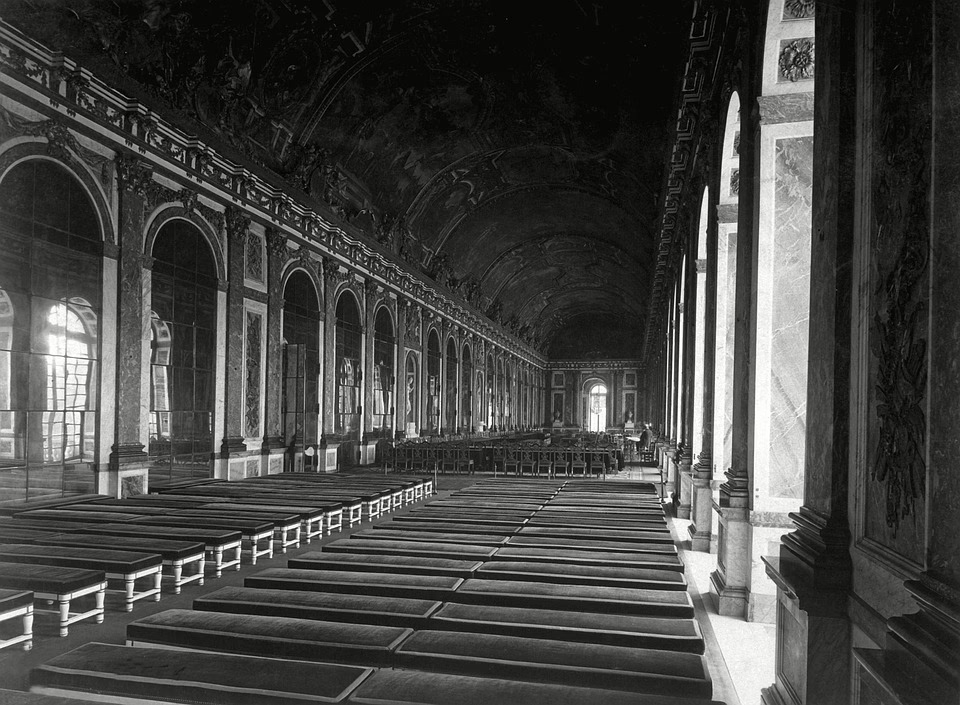Legacies of the Past: How Historical Events Shape Our Future
Introduction
The weight of history is felt in every aspect of modern society. Our cultural norms, political ideologies, economic systems, and even personal identities are deeply influenced by events and movements that transpired in the past. This article explores how historical events shape our present and future, examining key factors such as cultural legacies, economic ramifications, and political trajectories.
Understanding Historical Legacies
Historical legacies are the outcomes of past events that continue to affect societies and individuals today. These legacies can be both positive and negative, serving as reminders of achievements or cautionary tales of failures. Understanding how historical legacies work requires us to look at various domains, including:
- Cultural Legacies: These involve art, language, traditions, and belief systems passed down through generations.
- Economic Legacies: These encompass financial systems, economic disparities, and resource distribution rooted in historical contexts.
- Political Legacies: These consist of governance structures, legal systems, and the influence of past leaders or movements.
Cultural Legacies
Cultural legacies are perhaps the most tangible expressions of historical events. They influence how communities identify themselves and how they function in daily life.
Language and Literature
Take, for instance, the English language. The conquests of the Normans in 1066 not only affected the political landscape of England but also enriched its vocabulary and syntax, incorporating elements from French and Latin. Modern English is a direct legacy of this historical event, showcasing how language evolves through conquest and colonization.
Literature, too, serves as a vessel for cultural memory. In works like Chinua Achebe’s Things Fall Apart, historical events such as European colonization of Africa are captured, allowing new generations to understand the complex legacies of their ancestors.
Traditions and Customs
Traditions also reflect historical influences. Festivals, rituals, and customs often trace back to historical events—like the celebration of Independence Day in the United States, which commemorates the signing of the Declaration of Independence in 1776. These celebrations serve to forge collective identities while reminding citizens of their shared past.
Economic Legacies
Economic systems and disparities often arise from historical events—the consequences of which can linger for centuries.
Colonialism and Economic Disparities
The legacies of colonialism continue to shape economies across Africa, Asia, and the Americas. Countries like Congo, richly abundant in natural resources, still grapple with the effects of colonial exploitation, which laid the groundwork for ongoing economic challenges.
For example, in many post-colonial states, the lack of infrastructure and social systems needed for sustainable development can often be traced back to colonial policies that prioritized extraction over local development. Modern economic challenges, such as poverty and inequality, are seldom random; they are deeply rooted in a complex web of historical exploitation and neglect.
Political Legacies
Political legacies can manifest in various ways, from governance structures to legal systems that continue to influence modern politics.
Governance and Legal Systems
Many countries’ governance frameworks are heavily inspired by their colonial pasts. For example, the legal systems in many Commonwealth nations—such as India, Canada, and Australia—reflect British legal traditions. While these systems may offer structured governance, they also carry with them the complexities of historical injustices and systemic inequalities.
Movements and Ideologies
Historical movements like the Civil Rights Movement in the United States have not only shaped legislation and social norms but also paved the way for contemporary movements focusing on equality and justice. The ideals of human rights and social justice that emerged during this period continue to inspire movements worldwide, turning local struggles into global conversations.
The Interconnectedness of Historical Events
One of the critical understandings of historical legacies is their interconnectivity. Events rarely occur in isolation; they often form a multifaceted web where one event triggers another.
The World Wars and Modern Geopolitics
The two World Wars profoundly reshaped global politics. The Treaty of Versailles illustrated how punitive measures against one nation can sow the seeds for future conflict. This failure to achieve lasting peace after World War I set the stage for World War II, creating a cycle of violence that influenced modern geopolitics.
Cold War Effects
The Cold War further exemplifies this interconnectedness. The ideological battle between capitalism and communism has left its fingerprints on contemporary political landscapes, influencing everything from trade policies to military alliances. Nations that “aligned” with the U.S. or USSR during the Cold War still navigate the socio-political landscapes created during that era, long after the fall of the Berlin Wall.
Globalization and Transnationalism
The interconnectedness of historical events has also paved the way for globalization. Modern global trade and communication networks are rooted in historical migrations, colonization, and the subsequent exchanges of culture and goods.
Today, a product made in one part of the world can quickly find its way to consumers across the globe. However, this interconnectedness comes with its own historical ramifications, such as labor exploitation and environmental degradation, making it imperative to examine the historical contexts that shape our current economic paradigms.
Conclusion: Lessons for the Future
Understanding how our past shapes our present is vital for crafting a better future. Acknowledging historical events allows societies to learn from their mistakes and build upon their successes.
Embracing Cultural Heritage
In overcoming the shadows of the past, societies can embrace their cultural heritage. This involves recognizing historical injustices and working toward reconciliation. Countries with diverse cultural legacies, such as South Africa, exemplify this journey as they grapple with apartheid’s legacies while promoting unity in diversity.
Redefining Economic Strategies
Economically, acknowledging historical legacies can lead to more equitable policies. For instance, reparations and affirmative action programs aim to address disparities created by past injustices, lifting marginalized communities and creating a more balanced economic landscape.
Political Reflection and Reformation
Politically, understanding historical events can encourage more informed citizen engagement. It fosters a sense of responsibility among individuals to participate actively in their governance, urging them not only to remember the past but to engage in advocacy for a more just future.
Final Thoughts
The events of the past don’t merely fade into history; they linger in our cultural practices, economic systems, and political frameworks. As we continue to navigate a rapidly changing world, reflecting on these legacies is crucial for fostering a collective future that learns from its ancestors rather than repeating their mistakes. The stories of the past can guide us toward a more equitable, just, and informed society.
As we look to the future, we must embrace the complexities of our shared histories, recognizing that the lessons gleaned from the triumphs and tragedies of the past are invaluable tools for navigating the present and dreaming of a better tomorrow.
Modern Footnotes
- Cultural Legacies of Historical Events
- Economics of Colonialism
- Political Structures and Historical Influence
- Globalization: Past, Present, Future
(Note: Footnote sources are fictional and meant for illustrative purposes.)


























Add Comment